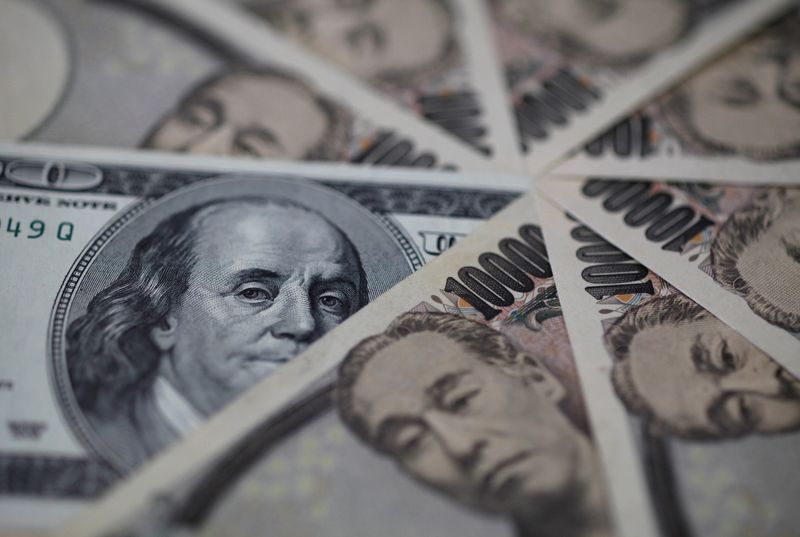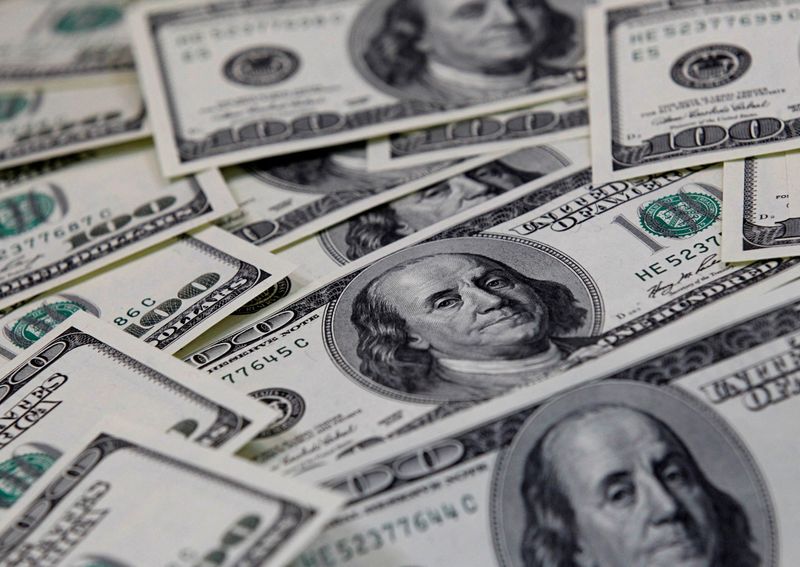By Samuel Indyk
LONDON (Reuters) - The euro was on track for its biggest one-day drop since September as German inflation eased in December, while the dollar rose to a two-week high with focus turning to the Federal Reserve's minutes from the December meeting.
The euro was last down around 1.3% against the dollar at $1.0526, its lowest level since Dec. 12 and on track for its biggest daily fall since Sept. 23 last year.
German state inflation data showed an easing of price pressures in December, indicating national inflation may also have slowed for a second month due in part to the government's one-off payment of household energy bills.
"The EUR is under-performing somewhat on the session, with the weaker than expected data likely weighing on sentiment," said Scotiabank chief currency strategist Shaun Osborne in a note.
"Near-term, corrective EUR losses could extend to the 1.03/1.04 region before renewed buying pressure develops," Osborne added. He noted that the German inflation figures would unlikely deter the ECB from pursuing a relatively aggressive tightening policy in the next few months.
Preliminary pan-German December data is due at 1300 GMT.
Investor attention this week is also on the Fed's December meeting minutes scheduled for release on Wednesday, with traders looking for clues to what rate path is likely to be taken.
The U.S. central bank raised interest rates by 50 basis points last month after delivering four consecutive 75-basis point hikes, but has said it may need to keep interest rates higher for longer to tame inflation.
"The Fed was hawkish but the market didn't buy into it," said Nordea chief analyst Niels Christensen.
"The market is pricing in cuts towards the end of this year and that's not the message from the Fed as we see it," Christensen added.
The dollar index, which measures the U.S. unit against six major currencies including the euro, was last up 1.1% at 104.82. The index rose 8% last year in its biggest annual jump since 2015 on the back of the Fed raising interest rates to tackle inflation.
The yen, which hit a seven-month peak during Asian trading hours, was last trading a touch softer at 130.83 per dollar.
Speculation that the Bank of Japan was set to start shifting from its ultra-loose policy flared in December when the central bank widened the yield cap range on 10-year Japanese government bonds.
This was further fuelled by a Nikkei report on Saturday that the BOJ was considering raising its inflation forecasts in January to show price growth close to its 2% target in fiscal 2023 and 2024, which helped push the yen to its strongest level against the dollar since June 1 last year.
"The move by the BOJ was definitely a game changer and the reaction was very swift," Nordea's Christensen said.
"Everything is pointing to less easy policy in Japan and that will keep dollar-yen to the downside."
The Japanese currency lost 12% against the dollar in 2022, with the authorities stepping into the market in September to prop it up for the first time since 1998 and again in October, when it weakened to a 32-year low of 151.94 per dollar.
Sterling was last trading at $1.1933, down 1% on the day, briefly hitting its lowest level since Nov. 30 last year.

Meanwhile, China's factory activity declined for the third straight month in December and at the sharpest pace in nearly three years as COVID-19 infections swept through production lines after Beijing's abrupt reversal of anti-virus measures.
The Australian and New Zealand dollars, which are sensitive to the Chinese growth outlook, both fell around 1.5% against the U.S. dollar.
